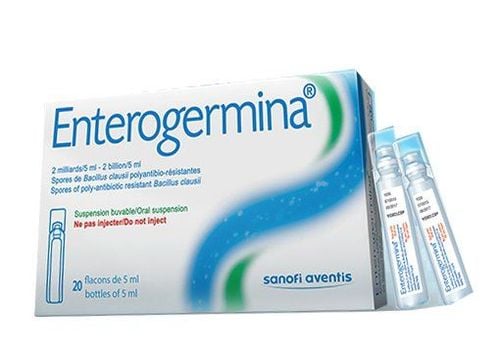Postpartum women may face various health issues, such as stretch marks and scars. However, one of the more concerning problems is constipation after childbirth. The use of laxatives for postpartum women requires careful consideration.
1. Causes of Constipation in Postpartum Women
Constipation often begins during pregnancy, peaking after delivery, and may persist during breastfeeding. It is typically caused by a combination of factors, including impaired digestive function, hormonal changes, dehydration, and postpartum stress or depression.
There are many causes of postpartum constipation in women, with the most common including:
- During pregnancy, the pressure exerted on the colon can reduce bowel motility, leading to constipation. This condition often persists for several months postpartum.
- During childbirth, women often lose significant amounts of blood and water due to lochia, which can hinder proper nourishment of the colon and lead to constipation.
- Pregnant and postpartum women often consume vitamins and nutrients such as calcium, iron, and powdered milk, which may have the unintended side effect of causing postpartum constipation.
- A diet high in protein and low in green vegetables, fruits, and fresh produce can also contribute to constipation.
- Postpartum women lose a significant amount of water to produce breast milk, but they often drink less water (due to the misconception that it may dilute breast milk), leading to dry, hard stools and resulting in constipation.
- After giving birth, women often engage in minimal physical activity, remain sedentary, and experience stress, which can inhibit intestinal motility and lead to constipation.
- Postpartum women often experience pain during bowel movements, which may result from a cesarean section or an unhealed perineal tear. This pain makes defecation difficult, leading to a reluctance to move around and a tendency to delay bowel movements. Consequently, this behavior can contribute to constipation in women after cesarean delivery.
2. Is It Safe to Use Laxatives?
Doctors may prescribe laxatives to treat postpartum constipation. Certain laxatives that are minimally absorbed into the bloodstream, such as macrogol, lactulose, sorbitol, bisacodyl, or docusate, are considered safe for breastfeeding mothers. However, consulting a gastroenterologist is essential for appropriate evaluation and treatment.
3. Precautions When Using Laxatives for Postpartum Women
Laxatives and their usage are topics of concern for many postpartum women. Mothers should minimize the use of laxatives during this period because these medications can pass through breast milk. If the infant consumes milk containing remnants of the laxatives, they inadvertently become passive users of the medication, potentially leading to adverse health effects for the baby.
You may opt for a postpartum laxative such as macrogol, a medication that is minimally absorbed into the bloodstream. Macrogol works by increasing water content in the intestines, preventing reabsorption of water and thereby creating a laxative effect. Additionally, macrogol is safe for postpartum use as its high molecular weight prevents absorption and metabolism within the digestive tract, ensuring it does not affect breastfeeding infants.
If postpartum constipation becomes too severe and none of the above methods provide relief, using an enema may be necessary as a supportive measure. However, mothers should be cautious not to overuse enemas for treating postpartum constipation. The reason is that frequent use can irritate the rectum, causing painful injuries. Moreover, prolonged use of rectal suppositories or enemas can lead to relaxation of the rectal smooth muscles, resulting in a loss of the natural urge to defecate. Therefore, before using any laxative medication for postpartum women, it is essential to consult with a treating physician or a gastroenterology specialist.
Medical experts believe that excessive stress and anxiety in postpartum women can contribute to constipation and other health issues. Therefore, it is recommended to dedicate time for self-relaxation through activities such as listening to music, cooking, light exercise, drinking plenty of water, and maintaining a fiber-rich diet. Fiber is abundant not only in fruits and vegetables but also in whole grains, nuts, and brown rice.
Postpartum constipation typically resolves within a few days to a week, so there is no need for excessive concern. Adjusting daily habits can help mothers gradually feel an improvement in constipation. However, if the condition does not improve after a few weeks and laxatives become necessary, it is recommended to visit healthcare facilities or hospitals specializing in gastroenterology for effective consultation and treatment.
Please dial HOTLINE for more information or register for an appointment HERE. Download MyVinmec app to make appointments faster and to manage your bookings easily.
To arrange an appointment, please call HOTLINE or make your reservation directly HERE. You may also download the MyVinmec app to schedule appointments faster and manage your reservations more conveniently.








